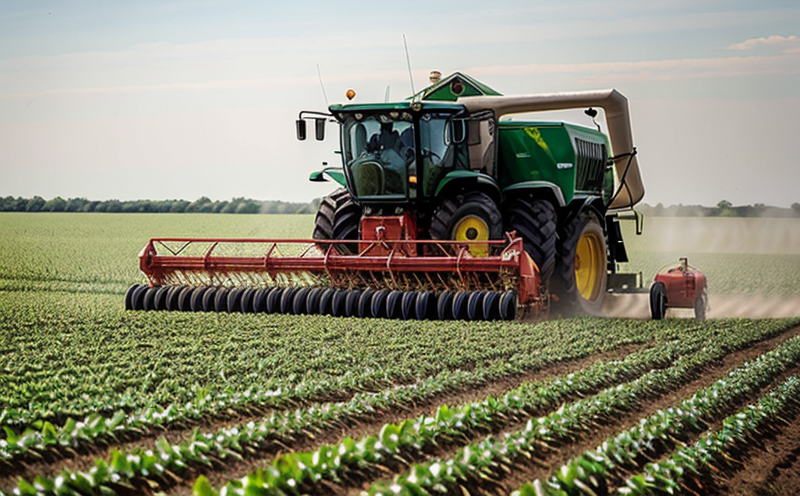Radiation Use Efficiency Testing
In the realm of agriculture and forestry testing, particularly within crop yield and productivity testing, Radiation Use Efficiency (RUE) Testing is a critical service that plays a pivotal role in assessing how effectively crops utilize light energy for photosynthesis. This test is essential for understanding the relationship between the amount of radiation absorbed by plants and the biomass or grain produced.
The primary goal of RUE testing is to optimize agricultural practices, enhance crop productivity, and reduce waste. By quantifying the efficiency with which a plant uses solar radiation, this service helps researchers and farmers identify optimal conditions for growth, such as light intensity, temperature, and water availability. This information can significantly impact sustainable agricultural practices by minimizing resource use while maximizing output.
Accurate RUE testing is not only beneficial for improving crop yields but also for ensuring compliance with environmental regulations and promoting sustainable farming methods. The test involves precise measurement techniques that ensure reliability and accuracy in the results, which are essential for making informed decisions about crop management. Additionally, this service supports research aimed at developing new varieties of crops that can thrive under various conditions, thereby increasing overall productivity.
The testing process typically includes exposure of plants to controlled levels of radiation followed by detailed measurements of photosynthetic activity and biomass production. Specimens are carefully prepared according to standardized protocols, ensuring consistency across tests. The use of advanced instrumentation allows for accurate quantification of both the input (radiation) and output (biomass or grain yield).
The importance of RUE testing extends beyond just improving individual farm operations; it contributes to global efforts towards food security by providing insights into how agricultural practices can be adapted to meet future challenges. By understanding the factors that influence radiation use efficiency, scientists and practitioners alike can devise strategies aimed at enhancing crop performance without increasing resource inputs.
Standardization is key in RUE testing, ensuring that results are comparable across different studies and locations. This helps establish benchmarks against which improvements can be measured over time. Compliance with international standards such as ISO 12375 ensures consistency and reliability of the tests conducted by our laboratory.
Applied Standards
| Standard | Description |
|---|---|
| ISO 12375-1 | General Principles for Measuring Radiation Use Efficiency in Crops |
| ASTM E2860 | Standard Practice for Field Measurement of Solar Radiation Incident on the Crop Canopy |
| Standard | Description |
|---|---|
| EN 15342 | Measurement and Calculation of Carbon Sequestration in Terrestrial Ecosystems Including Forests |
| IEC 62804-2 | Environmental Testing and Conditioning - Particular Test Conditions for Electronic Equipment - 2. Plant Production Systems |
Why Choose This Test
- Promotes sustainable agricultural practices by optimizing resource use.
- Enhances crop productivity and yield through precise measurement techniques.
- Aids in the development of new crop varieties that are more resilient to environmental stressors.
- Supports research aimed at improving overall efficiency within the agricultural sector.
International Acceptance and Recognition
- Radiation Use Efficiency Testing aligns with global initiatives focused on food security and sustainable agriculture.
- The results of this testing are widely accepted by regulatory bodies and international organizations, ensuring compliance with relevant standards.
- Our laboratory adheres to international guidelines, making our test outcomes credible and recognized globally.
- Radiation Use Efficiency Testing is a cornerstone in the pursuit of sustainable farming practices.
- The precision and reliability of RUE testing contribute significantly to the advancement of agricultural science.





